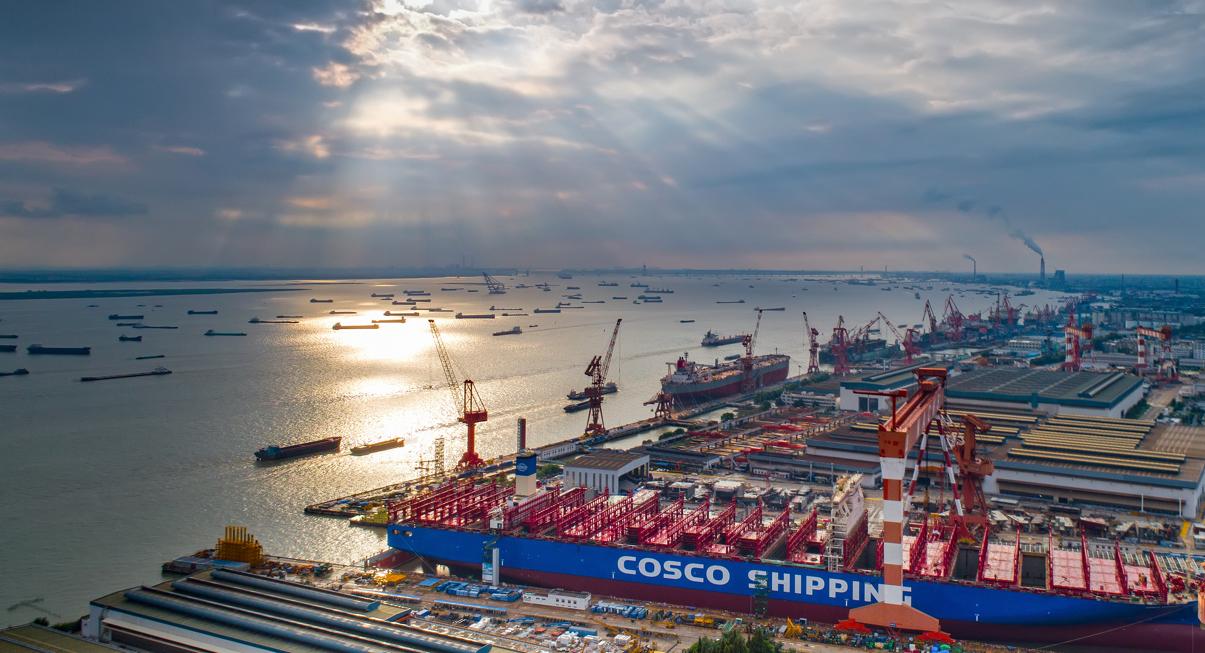航运业恐因疫情损失4万个岗位
作者: 发布时间:2020年08月18日 浏览量:1752 字体大小: A+ A-

图片来自网络,版权属于原作者
来源:Offshore Energy 2020-08-18
翻译:国际海事信息网 黄子倩 张运鸿
SeaIntelligence Consulting的首席执行官拉尔斯·詹森(Lars Jensen)认为,由于新冠病毒大流行,航运业半数以上的从业人员被迫在家工作,这可能会使航运业失去多达4万个工作岗位。
在即将于9月3日线上举行的数字集装箱峰会(Digital Container Summit)的会前采访上,詹森表示:“新冠疫情已经证明了我们的系统有效,即便有一半的工作是在家里完成的,但我们仍然能够带动全球85%的价值。”
詹森解释说,但这对于雇员来说并不是一件好事。
“如果你能在家完成大部分工作,我们也能够使工作自动化,”詹森补充道,“因此超过4万个岗位将在未来3-5年内消失。”
疫情加速了航运业的数字化进程,推动了众多原本会耗时数天的手动操作项目进一步简化。
隔离措施和不断增加的安全措施使得在家办公在这个充满不确定性的时代成为新常态。
因此,通过引进智能港口、智能集装箱和智能船舶,我们正在见证许多通过自动化操作实现数字化运营并提高效率的举措。
其中最突出的举措包括淘汰纸质提单,并通过区块链将其替换成电子提单。
数字集装箱航运协会(The Digital Container Shipping Association, DCSA)已经开始引入开放式合作来全面推广电子提单(eBL)。
作为行动的一部分,DCSA希望为必要的法律条款、条件、定义和术语提供开源标准,以促进客户、承运人、监管机构、金融机构和其他的行业利益相关者之间的沟通。
DCSA的财务模型预计,如果航运业内电子提单的使用率达到50%,业内每年可以节省超过40亿美元。
通过数字化来实现自动化操作一直是航运业从业人员的主要担忧之一,人们担心大量工作岗位可能会被淘汰。
另一方面,航运业日益需要改善从业者在工作和生活之间的平衡状态,特别是海员,由于他们的工作无法远程进行,因此他们在疫情期间受到的影响最大。
因此,通过在船上、在供应链上使用更先进的技术带来自动化并不一定是件坏事,伴随未来科技而来的是新的工种。
(本文版权归国际海事信息网所有,图片版权归原作者,转载请注明出处。)
COVID-19 could cost the shipping industry 40K jobs
The shipping industry could lose up to 40,000 jobs as more than 50% of the people in shipping lines work from home now due to the coronavirus pandemic, Lars Jensen, CEO, SeaIntelligence Consulting believes.
“COVID-19 has proven that our systems work, as we’re still able to move 85% of global value although 50% work from home”, Jensen said in a pre-interview for the Digital Container Summit set to be held online on September 3.
However, that’s not good for employees, Jensen explains.
“When you’re able to do most of the work from home we’re also able to automate jobs,” Lars Jensen added, “more than 40 000 jobs will disappear over the next 3-5 years because of that”.
The pandemic has accelerated the digitalization of the industry, pushing for further facilitation of numerous manual processes that took days to complete.
Working from home due to lockdowns and increasing safety measures has emerged as the new normal in an age of growing uncertainty.
Hence, we are seeing numerous initiatives to digitalize operations and boost efficiency through automation of operations by introducing smart ports, smart containers, and smart ships.
One of the most prominent efforts includes retiring the paper bill of lading and replacing it with an electronic counterpart via blockchain.
The Digital Container Shipping Association (DCSA) has embarked on an initiative to enable the open collaboration necessary for achieving full eBL adoption.
As part of the move, DCSA wants to develop open-source standards for necessary legal terms and conditions, as well as definitions and terminology to facilitate communication among customers, container carriers, regulators, financial institutions and other industry stakeholders.
According to DCSA’s financial modeling exercise, it is estimated that the industry can potentially save more than $4 billion per year if 50% eBL adoption is achieved.
Automation of operations via digitalization has been one of the major concerns for the workforce in the shipping sector as fears have been raised that numerous jobs could become obsolete.
On the other hand, there is a growing need for the industry to transform and improve the work and life balance for its workers, especially seafarers who have suffered the most during the pandemic as their job could not be carried out remotely.
Therefore, bringing more automation through more sophisticated technology onboard ships and throughout the supply chain might not necessarily be a bad thing, as new types of jobs would be created for workers to operate the technology of the future.
来源:simic
今日要闻
图片新闻
海外传真
热点报道






